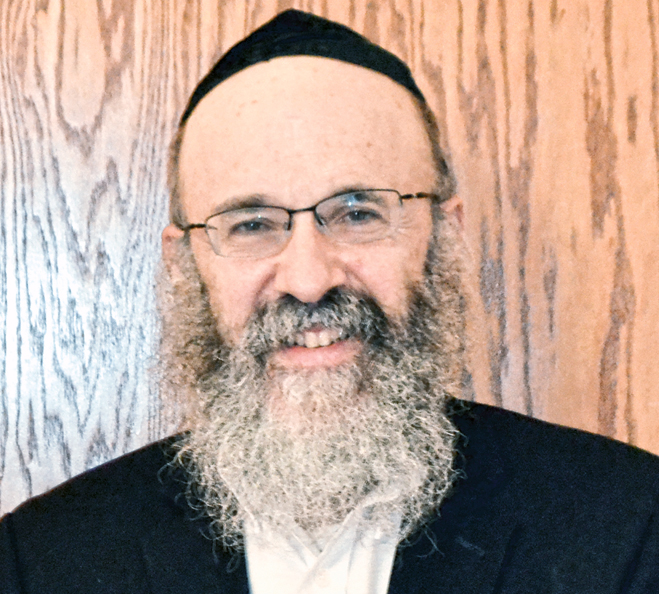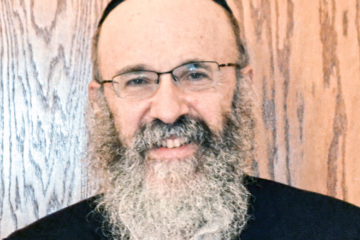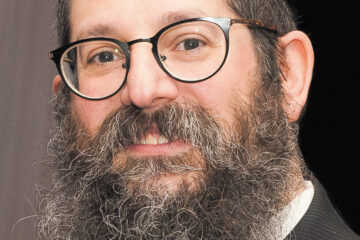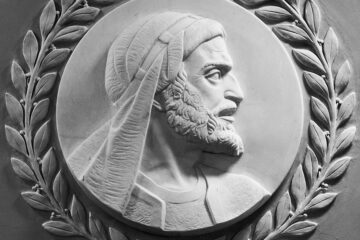Listen to our soul’s deepest voice

By Rabbi Shmuel Klatzkin, Chabad of Greater Dayton
Our holidays each bring out a very particular energy, each one appropriate to the time in which it comes. Yet that energy is meant to infuse us throughout the year.
Thus, we do not stop thinking of freedom once Pesach is over, remove teshuvah (repentance) and atonement from our minds after the High Holy Days, or forget about joy when Sukkot and Simchat Torah have passed. We aim to be permeated by those sparks throughout the entire year. The holiday is just the day when that particular energy gets a focused recharge.
So it is appropriate now, even after Shavuot, to reflect on that yom tov’s message and to internalize it. Called in the prayers The Time of the Giving of Our Torah, Shavuot speaks to us of the gift that the Torah is.
But who thinks of the law as a gift? True enough, there are a lot of other people who need to be controlled, but we ourselves? Why not stop with the message of Pesach, liberty?
Observing law is just the price we have to pay to benefit from human society. We generally accept law grudgingly: at least the laws that require us to do things we would rather not, or not to do things we really rather would do.
So what’s to celebrate? And what’s to internalize? If we are forced, we are forced.
The beginning of the answer has been noted often by the rabbis from two millennia ago in Israel and through these very pages in 21st-century Dayton. As the story of the giving of the Torah unfolds, the text in Exodus 19:2 says:
“They traveled from Refidim and they came to the wilderness of Sinai and they encamped there in the wilderness, and he encamped there…”
As good teachers point out, in the Hebrew original, the same word, encamped, appears first in the plural, as did all the words in the verse to that point, then suddenly changes to the singular.
Rashi, the great medieval commentator, summarizes the tradition’s insight into that switch. Why does it switch to speak of the people as a single identity? Because at that point they were: “As one person, with one heart.”
True enough, our holy books are filled with stories of humankind’s misbehavior in general and of Israel’s misbehavior in particular. But unlike at other times and places, the great moment of Sinai — the Giving of the Torah — began with the people together, profoundly as one.
That is the foundation and the underpinning of Torah, and why it has lasted. As with any good thing, it can be misappropriated and misused. Anything that has a good use can also be abused. As the rabbis put it, the Torah itself can be an elixir of life or an elixir of the opposite.
But the Torah has offered guidance and coherence that has been put to the test as nothing else through the millennia of human history.
For all of our mistakes and for all of the horrors that the world has thrown at us, we are still here, and in so many ways, blessed as never before.
It is not because of a philosophical idea alone, though the Torah has plenty of those. It is not merely because of spiritual inspiration, though that is there to be found by all who seek it.
What is extraordinary is that the Torah also gives us law that is able to guide us in every aspect of life.
Who observes all of it perfectly? And knowing the answer to that, why do we not resent it or ignore it?
As long as law is conceived of as forced impositions by other people, they bind us only as much as we feel vulnerable to the enforcers.
But the Torah, from the start, has not relied on external force, but on it being known to us as springing from the very same place as our own self, and the self of everyone else as well.
It is what flows out of being together, with ourselves and with our people, as one. Its voice penetrates our isolation and speaks to us of a oneness that brings us together with our own past and future, with all the imperatives that drive our own lives, and with every other person, who like ourselves, wants a wholeness within and without.
This quality permeates everything in it. Each mitzvah springs from the same core. Even if one is only connected with one mitzvah, but goes to its heart, one is connected with them all.
Without army or police to enforce it, the Torah speaks to us now as always of a law that flows from the source of all being. It unites inner and outer, shows how getting it right and good in our own life is connected with getting it right and good with others.
It shows us the way of the flow of life that brought us here and it shows us how we can attain the deepest of all satisfaction in adding to and enhancing the life of which we are a part.
“It all turns on affection,” E.M. Forster wrote a century ago in Howard’s End. We can’t do without love. It comes before and after all things. But Orwell showed us the terrifying darkness of a world — our world — where even love would be broken and enslaved to power: “He loved Big Brother.”
In an age that has seen Orwellian horror time and again, we can see the immense power and hope of Torah. We are all greater than that which divides us, and love will never remain the slave of tyrants.
Our Torah speaks that message again and again and connects us with the power to overcome and thrive. And it requires us only to listen to our own soul’s deepest voice.
To read the complete June 2021 Dayton Jewish Observer, click here.





